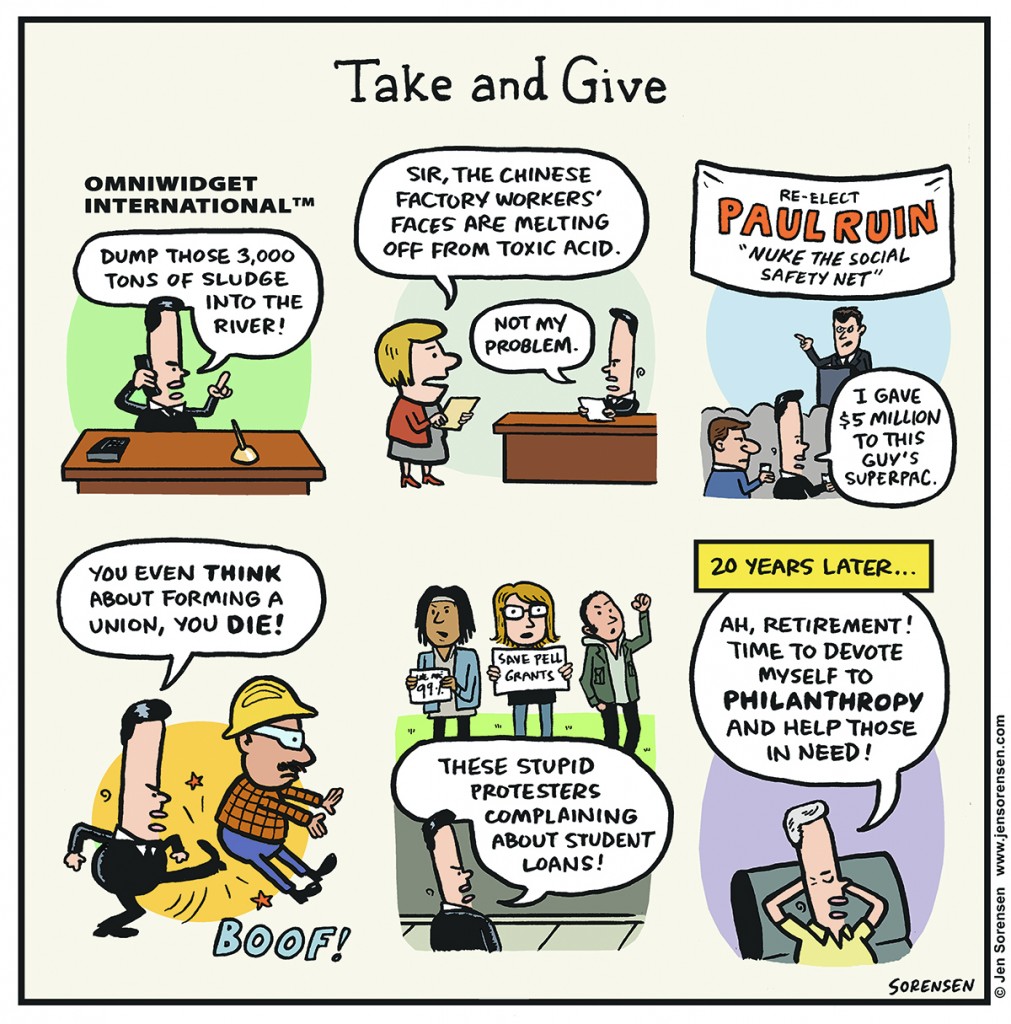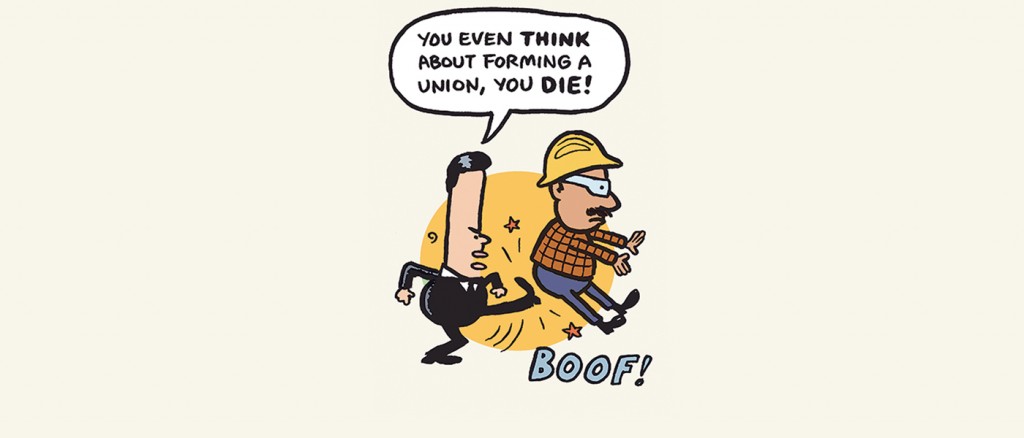I had a conversation last week with a New Times reader who was unhappy with a Jen Sorensen cartoon.
Her cartoons run with News & Blues in our print edition. They range from moderately snarky to mercilessly derisive. They have a liberal bent.
 The caller objected to a reference to anti-union activities, then suggested that the New Times betrayed its principles, although he never said what he thought those principles were or how we were betraying them. In the end, he was less interested in a discussion with me than in his own monologue.
The caller objected to a reference to anti-union activities, then suggested that the New Times betrayed its principles, although he never said what he thought those principles were or how we were betraying them. In the end, he was less interested in a discussion with me than in his own monologue.
Had we discussed it, I would have asked what the New Times could have done to make him happy. It’s unfair of me to assume, since we didn’t have that conversation, but I suspect I know: We shouldn’t publish cartoons like Sorensen’s.
Last week, armed men who represent that viewpoint to the extreme entered the offices of the satirical French weekly Charlie Hebdo. They sought out the journalists who had offended them, and then they murdered them.
I don’t want to overstate the parallels. The New Times isn’t Charlie Hebdo; Sorensen isn’t Stéphane Charbonnier, Hebdo’s editorial director. They were at the pinnacle of international satire and commentary; we’re just a little alt-weekly in Syracuse.
But I would have told last week’s caller, had he asked, that our mission isn’t to print only things that all readers will find to their liking. We aspire to print the truth about our community, and to provoke thought. We don’t always succeed. But we try.
And so this week we offer you an unusual cover story. It’s not local. It’s not arty. But it will help you understand what Charlie Hebdo is, why it’s important and why we can’t remain silent this week in the face of the violence in Paris.
***




